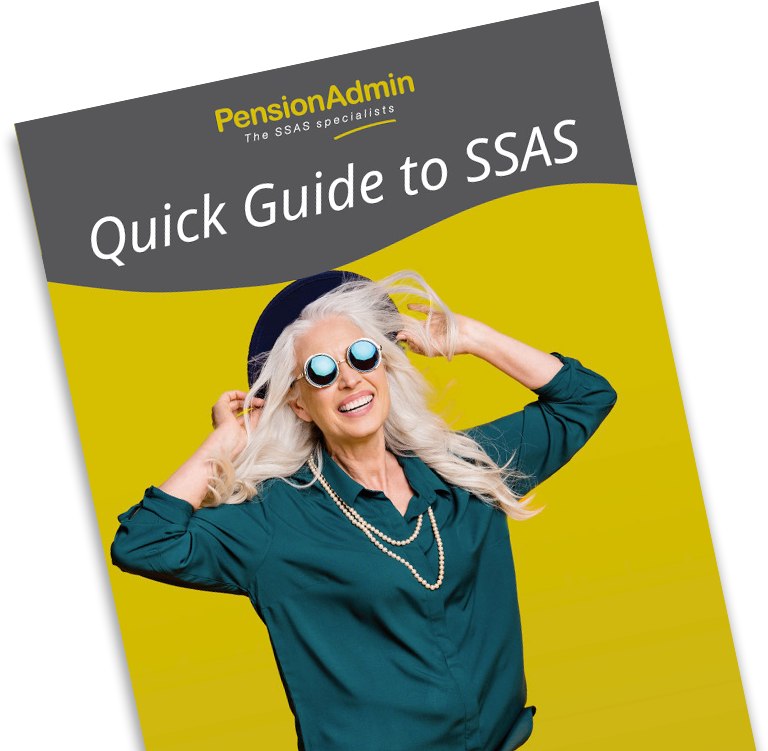All about commercial property
A brilliant perk of a SSAS is that it can own commercial property – and that’s a perk that has a lot of tax advantages.

Did you know that SSASs can own commercial property?
A brilliant perk of a SSAS is that it can own commercial property. That has lots of tax advantages including:
- Tax relief on contributions paid to the SSAS which can be used to purchase the property
- Rent paid by the tenants can be treated as a business expense and can reduce the income and corporation tax liability of the tenant
- Any gain on the property value is free from Capital Gains Tax
- Rent is paid to the SSAS and is free from Income Tax
More information about purchasing commercial property
There are lots of rules regarding buying property through your SSAS. We’ve collected together some of the ones we regularly get asked by our clients.
What kind of property can I buy?
For the SSAS to be able to purchase the property, it needs to be commercial and can be either freehold or leasehold. Freehold means owning a property outright and in full and Leasehold means holding a property for a specific number of years in return for paying a rent to the landlord.
A few examples of the kind of property that can be purchased are offices, industrial/business units and warehouses, shops, agricultural/forestry/development land, garages and car parks, nursing homes, pubs and hotels (as long as the scheme owns part or all of the whole building, rather than certain rooms)
Can I buy residential property with my SSAS?
What can't the SSAS buy?
Most people would like to buy residential property with their SSAS, but this is only allowed in certain circumstances – the residential part of the property must be an integral part of the commercial part of the property. An example of this would be a flat above a shop which is occupied by the shop manager as part of their terms of employment. It’s important to remember here though that the employee can’t be connected to any SSAS member.
Other properties that the SSAS can’t own are holiday lets, timeshares and huts.
Can the SSAS borrow money to pay for the purchase?
It certainly can. HMRC say that the SSAS can borrow up to 50% of its value (less any current borrowing) and money can be borrowed from a bank (a mortgage), scheme member or anyone else that is willing to lend the SSAS some money. If SSAS members are lending the money to the SSAS, the terms of the loan must be the same as what a bank would lend on. This keeps the deal on commercial terms.
Also, you can transfer any other pension policies you have into the SSAS to bump up the cash in the scheme.
Can I purchase a property with another person?
A SSAS can jointly purchase a property with someone else, another company or another pension scheme. The purchase doesn’t have to be in equal proportions either.
Can the SSAS register for VAT?
Yes, it can. A property is either subject to VAT when built (many new buildings are usually automatically registered for VAT) or can be elected for VAT, such as for development work. If the SSAS is registered for VAT, it can reclaim VAT on the purchase price plus costs for redeveloping or refurbishing.
This does also mean however that VAT will be charged on the both the rent and sale price when the property is sold.
Can I develop some land?
No problem. The SSAS can develop land as long as no residential habitable element is added. It can buy land and apply for residential planning permission and even start works on the site.
The key here is that it must be disposed of before it becomes “habitable”.
What other costs are involved?
As with any property purchase, there will be fees to pay. These include solicitor’s fees, Stamp Duty Land Tax, possibly VAT and lenders fees if the SSAS is borrowing money. All these costs are paid by the SSAS and need to be remembered when making a funding plan.
Are there any legal issues?
We will ask the solicitor acting for the SSAS to see to an environmental survey and full searches on behalf of the SSAS. This is important as if the property is contaminated and the polluter cannot be found, the owner is responsible for paying to clean up the site. It would not be a great investment if you purchased some land without a survey only to find you are now responsible for thousands of pounds to clean up the site. Consideration also must be given to whether the property contains asbestos products.
Can I buy the property owned by my company?
Yes, you can buy your company premises and here are some advantages of doing that:
– It can inject cash flow back into your business
– Tax relief is received on any contributions paid to purchase the property
– Costs and fees to buy the property are payable from the SSAS
– The property is protected from creditors in the event of company insolvency
– Growth in the value of the property when sold is free of Capital Gains Tax
– Rent paid provides a regular income which is free from Income Tax
– Rent is an allowable business expense against the company corporation tax bill
You just need to note here that this purchase is a “connected party” transaction. This also applies if you are purchasing from another person/company that is connected to you, for example your cousin or wife.
This just means that the property needs to be purchased on an arm’s length basis so the property will need to be valued by a qualified valuer to make sure a fair purchase price has been paid. If you need any clarification on this point, drop us an email and we will gladly talk this through with you.
If the SSAS is buying property from someone totally unconnected to the scheme and its members, a price is paid that has been negotiated between buyer and seller and a valuation is not needed.
A general definition of a ‘connected person’ is your spouse, a relative of either you or your spouse, the spouse of a relative of you or your spouse and a company which is controlled by you and/or persons connected with you. You may have to read that a few times!
What happens to the rental income?
The rent from tenants is free from Income Tax and is paid into the SSAS bank account. It can be used to fund borrowing repayments if the SSAS has borrowed money for the purchase or can be built up tax free for another purpose, like another investment. Rental income payable by the tenants can be treated by them as a business expense for tax purposes and can reduce the income and corporation tax liability of the tenant. This is especially great if you have purchased your business premises!
As with the purchase of the property, if the tenant is a connected party, the rent paid will need to be valued as open market by a qualified valuer. HMRC ask for this to ensure a connected party is paying the going rate for rent to keep it at arms length. If the tenant is not a connected party, no rental valuation is needed.
Do I need a formal Lease?
Yes, you do. Your SSAS can lease a commercial property to anyone, be it your business or somebody completely unconnected to you. If the Lease is to your business or someone else connected to you, it must be on ‘arm’s length commercial terms’. We would expect a tenant to enter a full ‘insuring and repairing lease’.
Who looks after the property going forward?
We do. PensionAdmin will invoice tenants for rent and chase for payment. We will let you know when rent reviews are due or if the Lease is due to expire and we also look after the SSAS VAT returns for you. All we ask is that you deal with insuring the property (including public liability insurance) and we remind you when renewals are coming up. Alternatively, you can appoint a professional property management company, if you prefer.
Is there anything else I need to think about?
Yes, property is an illiquid investment. If it needs to be sold in a hurry – this may not be possible. Also, if you are taking a pension income from the SSAS, you may be reliant on the rent received from the property to pay your pension. If the property is vacant for a while, the SSAS will need cash to carry on paying pensions. At this time, it will also need to pay for insurance, council rates and utility bills and a cash reserve may be needed.

Ask us a question
If you have a question about pensions, ask us. Fill in the boxes below, hit “send it” and we will come back to you.

Download our free SSAS guide
If you are interested in learning a bit more about SSASs, please download our free SSAS guide here
